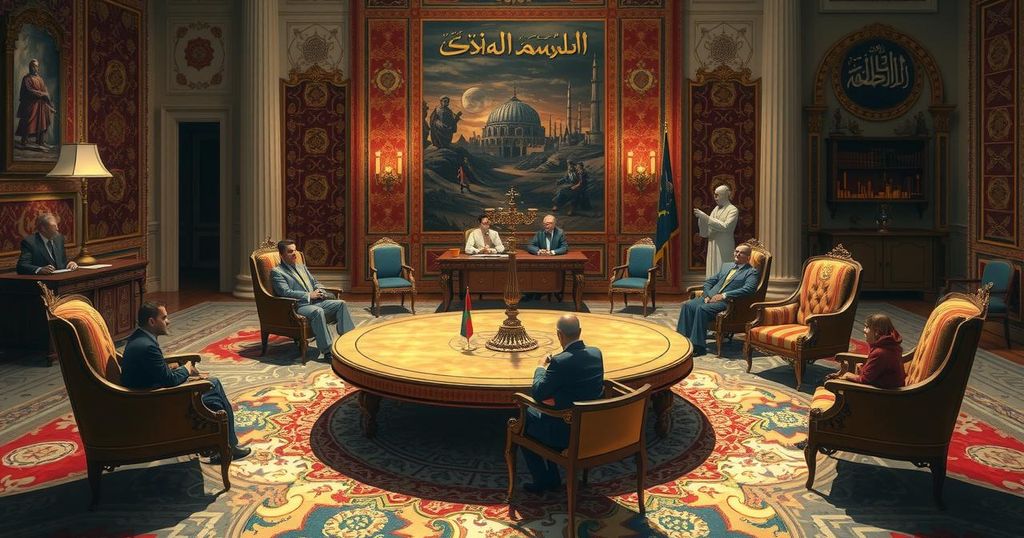Ukrainian President Zelensky faces a difficult decision in negotiations in Saudi Arabia, balancing acquiescence to Trump against national sovereignty amidst Russian aggression. Despite Ukrainian military reports of Russian weaknesses, Trump’s previous support for Russia complicates Ukraine’s position. The potential for a ceasefire introduces risks that could disadvantage Ukraine further, while soldiers express a deep-rooted resolve to continue fighting.
In recent discussions regarding the situation in Ukraine, Ukrainian President Volodymyr Zelensky finds himself facing a critical decision during the talks in Saudi Arabia. The choice appears stark: acquiesce to former President Donald Trump’s demands, or risk further jeopardizing his nation’s sovereignty amid ongoing conflict with Russia. Although Russia has exhibited difficulties in advancing its position in the east, a recent offensive in the Kursk region suggests a potential collaboration between the Kremlin and the Biden administration.
Prior to the recent escalation, the conflict had reached a stalemate, with neither Russia nor Ukraine gaining significant ground. Reports from Ukrainian soldiers on the frontlines indicate a discernible decline in the effectiveness of Russian forces, raising hopes that sustained resistance could ultimately lead to a collapse of their military power within 18 months.
Contrarily, the White House’s stance appears to contradict this optimism, as there have been assertions from Trump suggesting that Ukraine is not in a strong position to negotiate. Trump’s suspension of military aid and intelligence sharing has seemingly placed Zelensky’s administration at a disadvantage, which has coincided with Russian military endeavors, particularly in Kursk.
Russian advancements in the Kursk region may have alleviated some pressure on their forces, which had been losing ground in the east. Ukrainian military officials have expressed a strong belief in their ability to repel Russian advances, highlighting the current limitations faced by Russian troops, including reduced artillery capabilities and a heightened fear of Ukrainian drone strikes.
Amid these concerns, there is speculation that Ukraine may consider a ceasefire during the ongoing discussions in Jeddah, potentially halting Russian aerial assaults but also curbing their own military sorties against Russian installations. Such a temporary agreement could give Russia an opportunity to regroup, disadvantageously impacting Ukraine if it were to collapse. Furthermore, if a ceasefire were to fall apart, it is believed that Trump’s administration would likely hold Zelensky accountable, thus jeopardizing any American support for Ukraine and additionally threatening crucial assets like the Starlink satellite system.
As soldiers express their frustration and sense of betrayal by both domestic and foreign actors, the Ukrainian military remains poised for conflict. They emphasize a historic resilience in fighting for their sovereignty, illuminating the broader struggle against external aggression. The inevitability of facing betrayal, according to soldier Roman of Ukraine’s 3rd Brigade, is, unfortunately, woven into their narrative but highlights an unyielding determination to endure despite the circumstances.
The situation surrounding Ukraine poses grave challenges for President Zelensky as he navigates negotiations influenced by external pressures, particularly from Donald Trump. The prospect of a ceasefire presents both opportunities and potential threats, risking Ukraine’s military advantage. With ongoing losses and shifting dynamics, the Ukrainian forces exhibit resilience, yet face dire consequences should they enter unfavorable agreements. Ultimately, the fate of Ukraine rests precariously on the outcomes of these decisive talks.
Original Source: www.independent.co.uk




